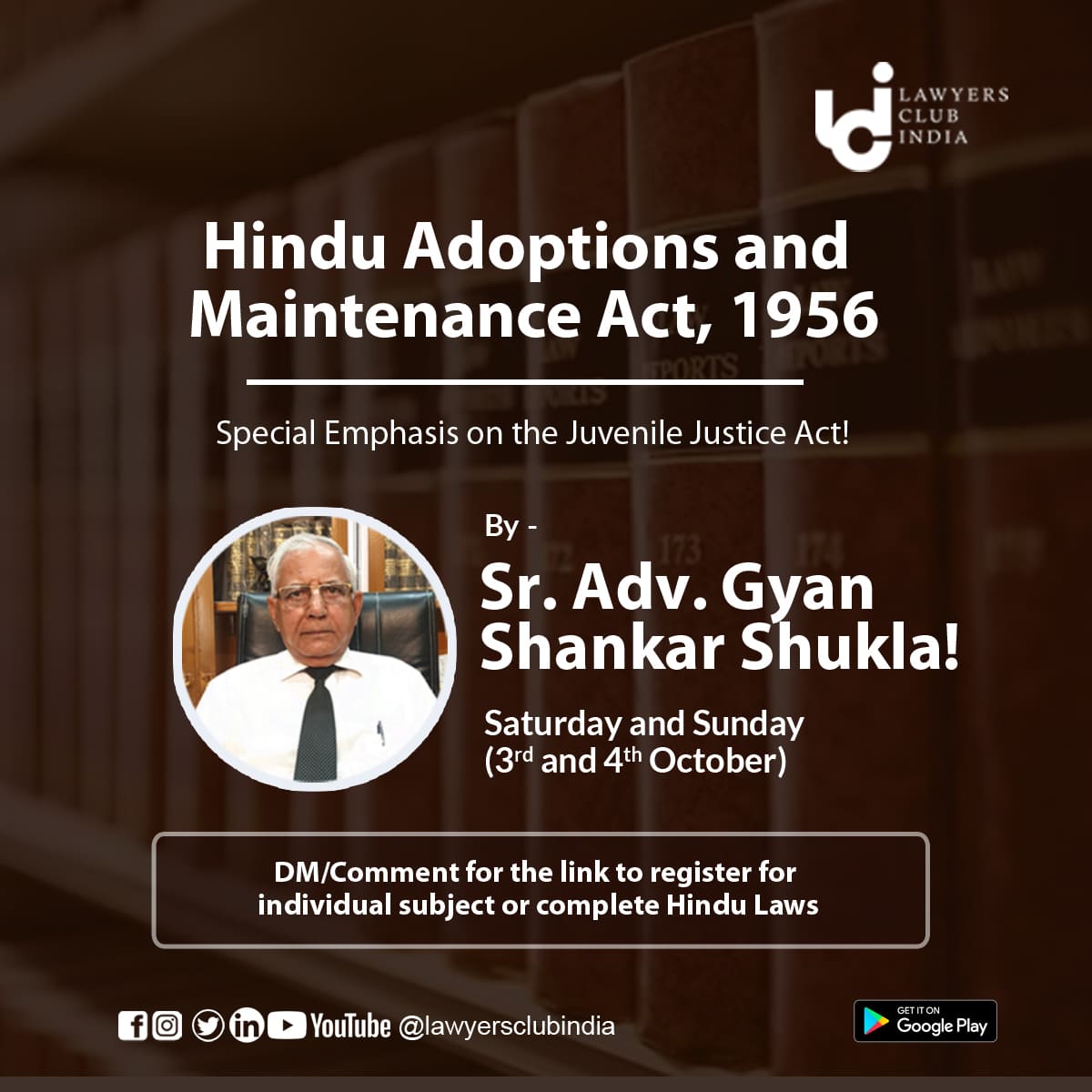Bench:
S.B. Sinha, DalveerBhandari
Issue:
Whether it is necessary to bring on records that there has been an actual giving and taking ceremony in order to prove an adoption valid?

Enroll the Complete MasterClass Course on Hindu Laws: Click Here
Facts:
• M. Obalappa was the owner of the disputed property.
• He had three sons,Nagappa, Obalappa and Kadarappa.
• M. Obalappa died in 1889.
• Nagappa separated himself in the year 1913. Obalappa and Kadarappa were, thus, in joint possession of the property.
• Obalappa died in 1949.
• The plaintiffs-respondents are said to be the heirs of the natural daughter of Kadarappa, Nirmala.
• Allegedly, she was adopted by Obalappa during his life time. Kadarappa died in 1961 leaving seven sons and one daughter Nirmala, whose heirs and legal representatives of the plaintiffs claimed themselves, she died in the year 1999.
• The children of Kadarappa, Gurudas and Others, and their sons, Sagunarthy and Shivarthy, are the Appellants.
• Obalappa had executed a deed of gift in favour of Nirmala showing her as daughter of Kadarappa but under his guardianship whereas the heirs of Nirmala claimed that Nirmala inherited the property on his death.
• Kadrappa had also transferred three properties in favour of Nirmala as a trustee, referring her to be the foster daughter of Oblappa and describing the said properties to be held in trust.
• The purported adoption of Nirmala by Obalappa is in question in the suit.
Appellant's Contentions:
The counsel for the appellants contended that Adoption of Nirmala by Obalappa has neither been proved nor was permissible in law.Nirmala, during her life time, never claimed to be an adopted daughter and she did not have any interest in the joint family properties.
Respondent's Contentions:
The counsel for the respondents argued that the question as regard illegality of adoption cannot be permitted to be raised for the first time before this Court. It was contended that both the Trial Judge as also the High Court having found that the plaintiffs not only have a prima facie case but also balance of convenience lay in their favour, and the present Court should not exercise its discretionary jurisdiction under Article 136 of the Constitution of India.
Judgement:
The court held that, prima facie, Nirmala does not appear to have been adopted by Obalappa which is evident from the deed of gift executed by him. Even in the transfer deed executed by Kadarappa, Nirmala was described as a foster daughter of Obalappaand not as an adopted daughter. Even if that be so, she would inherit only the property which fell to the share of Kadarappa on partition. Nirmala as a daughter of Kadarappa can claim interest in his share in the properties only.
To prove valid adoption, it would be necessary to bring on records that there had been an actual giving and taking ceremony. Performance of 'dattahomam' was imperative, subject to just exceptions. Above all, as noticed before, the question would arise as to whether adoption of a daughter was permissible in law.
Further, the court held that the matter is required to be dealt with by the Trial Court.
Relevant paragraphs:
“The properties may be valuable but would it be proper to issue an order of injunction restraining the Appellants herein from dealing with the properties in any manner whatsoever is the core question. They have not been able to enjoy the fruits of the development agreements. The properties have not been sold for a long time. The commercial property has not been put to any use. The condition of the properties being remaining wholly unused could deteriorate. These issues are relevant. The courts below did not pose these questions unto themselves and, thus, misdirected themselves in law.”















